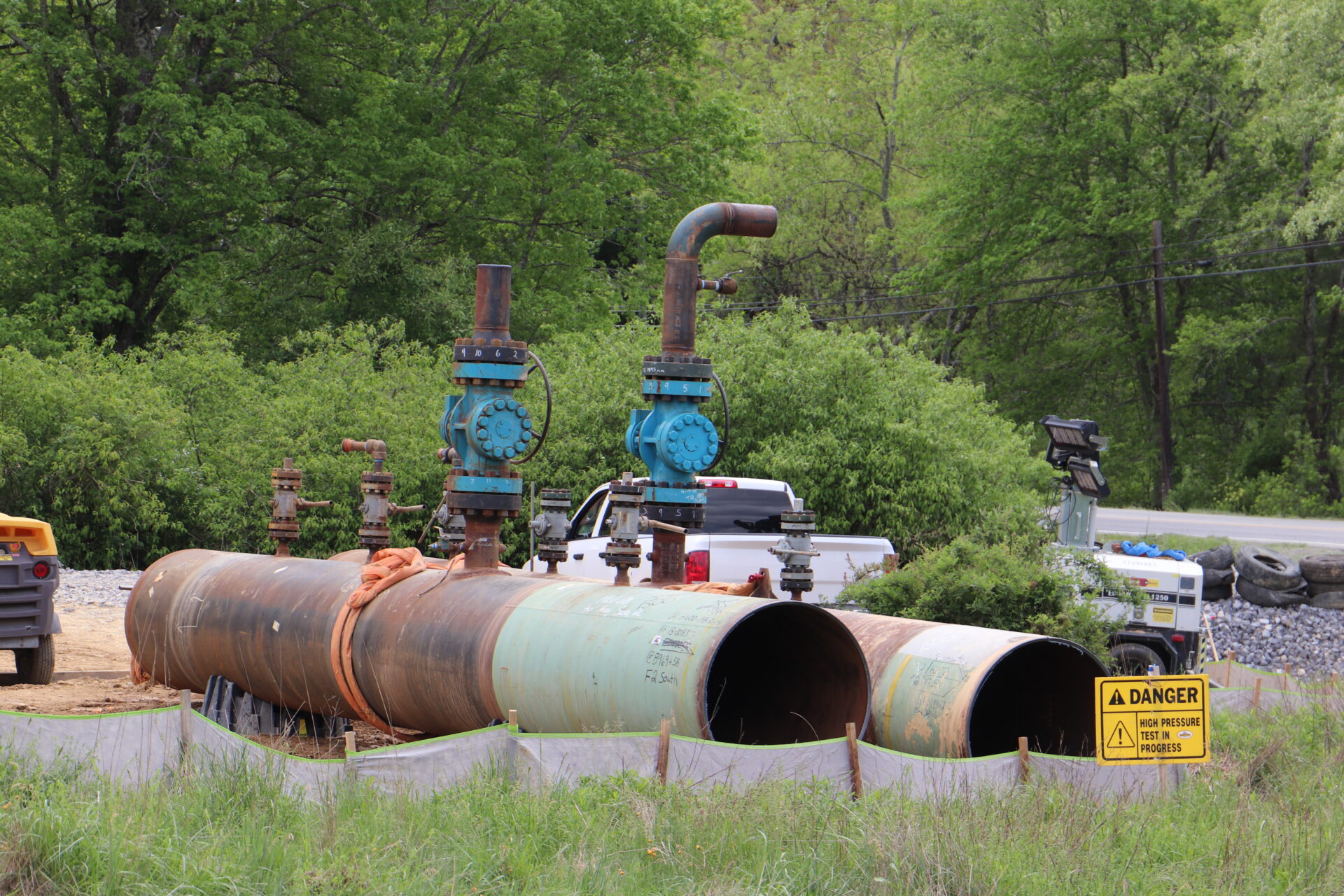Curtis Tate spoke with Cynthia Quarterman, the former head of the Pipeline and Hazardous Materials Safety Administration from 2009 to 2014.
The Mountain Valley Pipeline is under scrutiny from federal regulators after it failed a pressure test in Virginia last month.
Curtis Tate spoke with Cynthia Quarterman, the former head of the Pipeline and Hazardous Materials Safety Administration from 2009 to 2014, about the federal agency’s role in regulating 3 million miles of pipeline.
This interview has been edited for length and clarity.
Tate: What role does PHMSA play in commissioning a pipeline? Is it involved in the testing process? Or mainly once the pipeline begins operation?
Quarterman: Ordinarily, I would say that it is more of the latter than the former. It’s involved after the pipeline gets into service much more than it is during construction. Now, that’s not to say that they are not involved. They do go out while pipelines are being put in and inspect them.
But the fact of the matter is, it’s so few inspectors and so many miles of pipeline that it’s difficult to get everywhere you want to be. Just looking at the record on this pipeline, it looks like the agency is saying they’ve been out 200 and something days, which sounds like quite a few times, although that’s been over many years. (The Federal Energy Regulatory Commission) is the one who decides that it is OK for them to proceed with building a new pipeline. And they are responsible for ensuring that the construction of the pipeline meets all the safety standards.
Tate: The MVP is under a consent decree with PHMSA over the integrity of the coating on the pipe that prevents corrosion. What is PHMSA looking for? How would they enforce it?
Quarterman: The MVP has to prove that they’ve met the terms of the consent decree. I haven’t seen the terms of consent decree in a great detail. So, I don’t know if they have required a third party that PHMSA chose to look at what MVP has done, but the coating and the pressure test are extremely unlikely to be related.
The issue of having pipeline around for a long time, especially if it’s already coated, is that the coating can disbond from the pipe. Crevices and cavities, where corrosion could then be created because of water seeping in under the coating and that one spot becoming a pit and becoming corroded. Unlikely to have the kind of effect in this time period to make the pressure test fail. I’m just shooting off the hip here. It’s probably related to some sort of a problem at the seams or the welds, and less likely to be corrosion. On to the point where it’s created a pit so big that it’ll cause the pipe to fail from the pressure test. This is something that is not necessarily required to be reported to the public, so we’ll see if PHMSA requires MVP to tell them what the cause was, and whether that gets communicated more broadly.
Tate: PHMSA is a relatively small agency overseeing a vast system of pipelines, right?
Quarterman: Yes, it is. And when I left, one of the things I was pushing for more inspectors and the numbers have grown substantially since then, but you’re still talking about a couple of hundred people who are overseeing 3 million miles of pipeline.
Tate: MVP crosses through some very rugged and remote terrain, with very steep slopes. Can it carry gas safely under high pressure?
Quarterman: It is certainly the safest way to carry oil and gas across the country. I have been out for inspections. I remember going out to some of the pipeline inspections where it looks like you’re going up a mountain. The pipeline is going up and coming down the other side. Obviously, there are pipelines under a great deal of the rivers and streams across the country. And for the most part, you have no idea they’re there, because they have been operating for so long without a problem, but there are occasions when horrible things happen, obviously.
Tate: The Federal Energy Regulatory Commission must soon decide whether to allow the MVP to begin operation. What should we expect?
Quarterman: I don’t know anybody over at FERC. I don’t have any inside knowledge. They’re pretty independent. So they’re going to make an independent decision about this. Hopefully, they will have a conversation with their sister agency PHMSA to talk about what is the current status of the consent decree, what they think about what happened with the pipeline. I’m hoping that they discuss with PHMSA what it means. I don’t know that they will. They tend to be pretty independent, meaning they don’t always, always reach out to speak to other people when they make their decision.
Tate: How persuasive is the public comment FERC receives?
Quarterman: I’m sure it’s considered. Now I’ve practiced before the rate hearings but I’ve never worked there. I don’t know who the current commissioners are, where their leanings are or anything like that. It’s going to depend upon the chairman of that commission and where they want it to go, whether they have the votes to either push it forward or delay it further.
